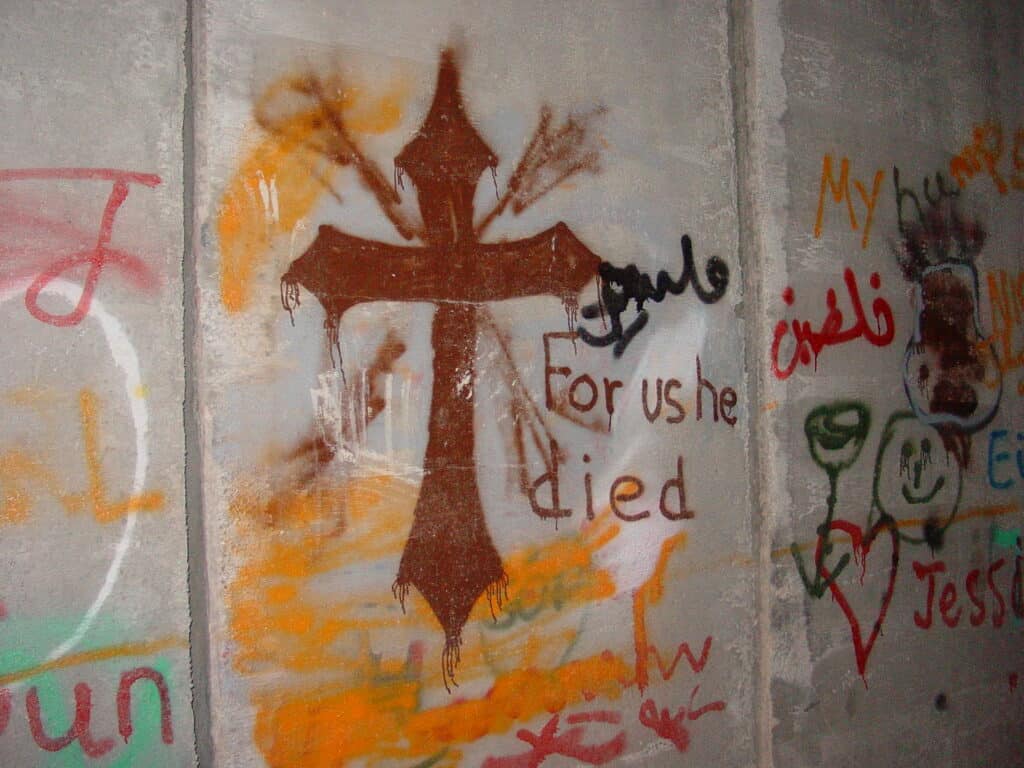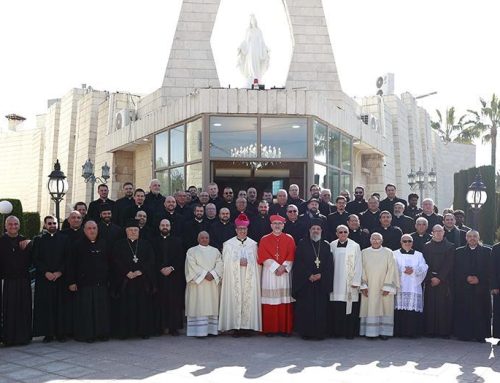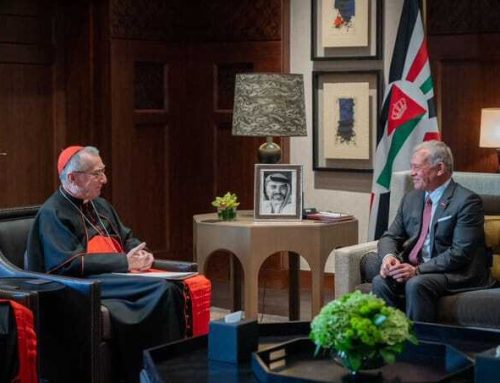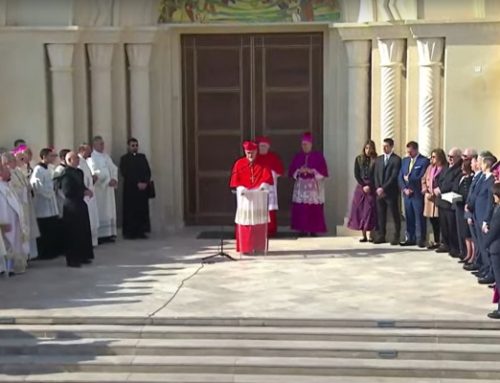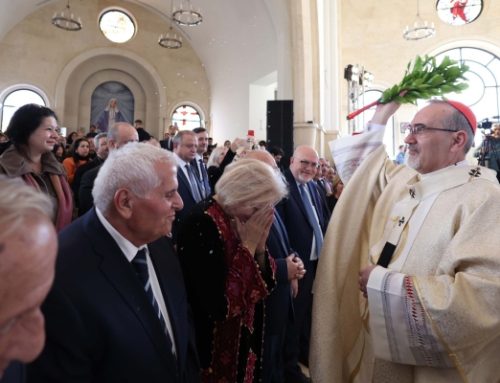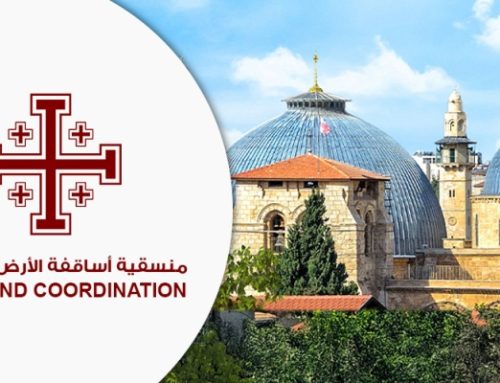As war rages on in the Gaza Strip, Christians in the West Bank and Jerusalem find themselves in an increasingly desperate situation. Reinhard Backes, the Middle East Project Consultant for international pontifical foundation Aid to the Church in Need (ACN), reports on a trip to the Holy Land in July 2024, during which he and an ACN delegation met the Latin Patriarch of Jerusalem, Cardinal Pierbattista Pizzaballa, and many other local Christians.
ACN is standing with people in the Holy Land and showing solidarity through trips to the affected areas. Which places did you visit during your latest stay there?
We were in the Old City of Jerusalem, but also in East Jerusalem, of course, where Christians mainly live. And we were in the West Bank. Because of the current situation, we could not travel to the Gaza Strip, but we had numerous conversations with people who are in close contact with the two Christian communities there, the Orthodox and the Catholics. And then we had the opportunity to meet Christian youth, something very close to Cardinal Pizzaballa’s heart. Even before the war, we wanted to help young people in the Holy Land find a perspective: a faith perspective, but also a career perspective.
Has the war changed the country?
Yes, very much so. The most drastic change is certainly that the trust between Israelis and Palestinians is completely shattered. I get the impression that the extremes on both sides are very similar in their thinking. The arguments are religious, and in such arguments, the opponent, the other, is denied every right to exist. However, that just shows how necessary the Christian message is: that despite everything, you have to go to the other and try to find a solution. That is extremely difficult – from a human point of view, perhaps even impossible – because even among the Christians, there are tensions. There are Hebrew-speaking and Arabic-speaking Christians. In the Israeli army, there are young Catholics, while there are Arab Christians among the victims of the military operation in Gaza. You can imagine how difficult it is to come together. That’s why during our meeting, Cardinal Pizzaballa said that it is extremely difficult to speak about neutrality or dialogue. Although of course that is necessary. However, he emphasized that you must always have sympathy for the Christians on both sides, and listen to them and be with them. And of course, that is a balancing act that is very, very difficult.

The number of Christians in the Holy Land has been declining for decades. Has the war further encouraged their exodus?
On the one hand, yes. There is strong pressure for migration because of the current conflict. However, there is also a contrary trend: Christians coming to the Holy Land. At first, that might be a surprise, but Israeli society has a problem that we in Europe well know: an aging population. Therefore, young people, mostly women, are being recruited to work in the health and care sectors in Israel. These migrants, mostly Catholics, come from the Philippines and India. In recent years, up to 100,000 Christians moved to Israel. Their situation is admittedly difficult, because the Israeli state can take away the work and residence permits of migrants who marry or have children. Children born to migrants in Israel have no clear right of residence; they are illegal in the country, and from the age of 18, they can be deported at any time. Even though they grew up in Israel, speak Hebrew, and were never in their parent’s country of origin.
What is ACN doing to support Christians in the Holy Land?
Since the outbreak of the war in October, ACN has provided emergency relief. The overall program, through which we provide food and medical care, comes to $756,875. I believe that the program must continue: in the Gaza Strip, there are still about 600 Christians, mostly in Gaza City. The city is practically destroyed, but life must somehow go on. And the Christians want to stay there. They are, above all, on the premises of Catholic and Orthodox churches. In the West Bank, many people – above all, young people – have lost their jobs: Israel has closed the borders to the West Bank and no longer allows Palestinians to come to work in Israel. Before the war, over 100,000 Palestinians, many of them Christian, traveled daily to work in Israel. And because of the war, hardly any pilgrims are coming. Therefore, all this income, which for Christians was especially important, has dropped off. That is why the Latin Patriarchate, together with ACN, has set up a job creation program: to help people find work, mostly in church institutions where, for example, they carry out renovation work.
So, without outside help, the situation for Christians in the Holy Land would be fatal?
Yes, at this time, our solidarity in prayer and our active support is essential for survival. The local situation is difficult, and it is very important that we don’t forget our brothers and sisters there.
By churchinneed

